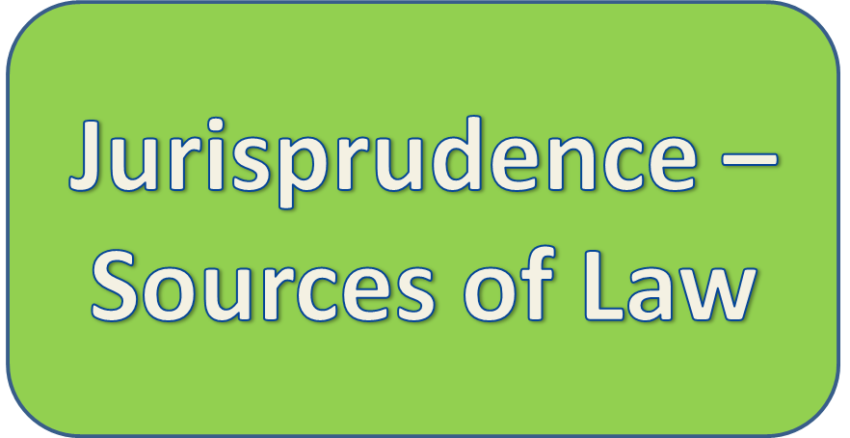Jurisprudence – Sources of law
The meaning of source is origin. Jurists have contradiction about origin of law.
Meaning & Definitions of Jurisprudence
According to Salmond,

Formal and Material.
Formal sources are those from which law derives its validity and force, that is, the will of the State which is expressed through statutes and judicial decisions.
He sub-divided the Material sources into
Legal sources and historical sources
Legal sources
(These are authoritative- legislations, precedent, custom, Conventional Law (agreement and professional opinion.)
The sources which are recognized as such by the law it-self. According to salmond, “ the sources are the only gate through which new principle can find entrance into the law.”
Historical sources
(These are unauthoritative, eg. Writing of eminent jurists, Foreign judgements etc), It influences the course of legal development and operates only indirectly and mediately. These are Pursuasive.
According to Austin-

The term ‘source of law’ has three different meanings:
- Direct or immediate author – This term refers to immediate or direct author of the law which means the sovereign in the country.
- Historical Documents – This term refers to the historical document from which the body of law can be known.
- Causes – This term refers to the causes that have brought into existence the rules that later on acquire the force of law. E.g. legislation, customs, judicial decision, equity etc.
According to Keeton

The sources of law has emerged as a critique of Salmond’s classification.
He defines the term as those materials from which law is eventually fashioned through judicial activity. He classified the sources of law into- binding sources and persuasive sources.
- Binding sources are those which have to be necessarily followed by the courts. Legislations, judicial precedents and customs are examples of such source.
- Persuasive sources are those which come into play when there is absence of any binding source on any particular subject. Foreign precedents, professional opinions and principles of morality or equity are examples of persuasive sources of law.
- CrPC
- Constitution of India
- Evidence Act
- Civil Procedure Code
- Indian Penal Code
- Jurisprudence
- International Law
- Law of Tort

